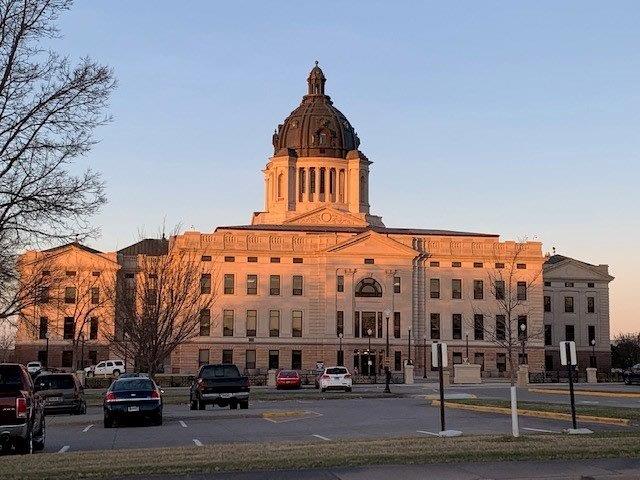SIOUX FALLS, S.D. (AP) — South Dakota Gov. Kristi Noem tried Tuesday to win over the Republican-controlled Legislature with details of her plan to enact a historic repeal of the state’s tax on groceries. But to deliver on the campaign promise, the Republican governor must convince lawmakers in the coming months that the state can also afford to tackle inflation and a long list of items pressing on the state’s budget.
Noem, a Republican, was critical of a proposal to repeal the state grocery tax during the final days of the legislative session in March, but this fall, she changed course and made it a centerpiece of her reelection campaign.
“Eliminating the sales tax on groceries is the biggest way that in my budget that we can help South Dakotans tackle the challenge of Joe Biden’s inflation and protect their hard-earned money,” she told the Legislature in her annual budget address. “Unfortunately, food costs have risen by far too much. Families are struggling to make ends meet as a result.”
Noem, who has set her political ambitions beyond South Dakota, repeatedly took aim at Biden’s economic policies in the speech and credited the state’s rosy financial outlook to her conservative policy-making.
However, the state’s economic growth has lagged behind much of the country this year. South Dakota’s gross domestic product growth — the broadest measure of economic output — ranked 33rd among states from April through June, according to the most recent report from the U.S. Bureau of Economic Analysis.
Some Republicans and Democrats say they first want give raises to keep pace with inflation to people who draw their income from state funds. They also need to find funding for the Medicaid expansion approved by voters this year, upgrades to the state’s prison system and shortages in elder care facilities.
“We’re going into a year where there’s a real interest in cutting taxes but there are also a lot of new demands because of high inflation,” said Republican Rep. Tony Venhuizen ahead of Noem’s speech.
The governor has estimated that repealing the state tax on groceries would cost about $100 million and argued that state revenue growth can cover it. Noem expects the state to have $310 million in ongoing revenue growth in the upcoming fiscal year, as well as $216 million in one-time funds available.


